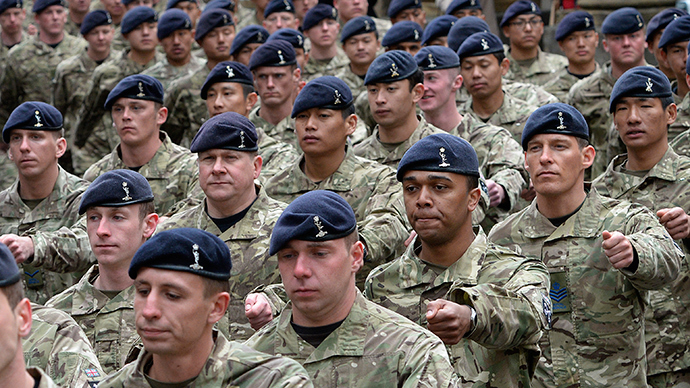'West hard pressed after Syrian Islamic insurgency it supported backfired'

Both the EU and the US are confused as they are anti-Assad, but they are disturbed at the turn of events where Islamist insurgents seem to have an upper hand, Paul Lashmar, investigative journalist at Brunel University, told RT.
RT:Last week a UK man was found guilty of terrorism in Syria. And that's amid Westminster’s vocal support of Al-Qaeda linked rebels in the war-torn country. Isn't there some sort of discrepancy?
Paul Lashmar: The UK position on Syrian terrorism is confused. Initially the UK was supporting the insurgency against President Assad and it seemed that the Free Syrian Army was supportable. But things got terribly confused by the fact of the rise of Islamic element insurgency. So what you have got is that the British now are in a very difficult situation, because on the one hand they have supported these very people, but now they are concerned that the people who are going to fight will be Islamists, jihadi insurgents, who are going to come back with terrorist skills and are going to apply them in Europe or in the UK. So they have legislated against them. I think they are really very confused and it will have all sorts of major ramifications that they have clearly not thought about at all.
RT:The US State department has also confirmed this week for the first time that an American committed a suicide bombing in Syria. Are there reasons to be afraid of another 9/11?
PL: Lots of things are going on here, and there is no doubt that people going to Syria, being trained in a military operation, then coming back, have some potential to be a threat. That’s a very difficult issue for the West to deal with. They haven't found a useful way of dealing with it and the Americans are confused, as other Western nations are. They are anti-Assad, but they are disturbed at the turn of events where Islamist insurgents seem to have an upper hand and they are worried they are going to be UK, American and EU citizens trained to commit acts of terrorism. But their response to that is very legally questionable.
RT:The number of Europeans joining jihadists in Syria is dramatically rising. Countries like France are becoming hotbeds for terrorists in Europe. Is this fact going to change the Western pro-rebel rhetoric any time soon?
PL: That is a difficult question. There are certainly supposed to be up to 700 UK citizens fighting in Syria for the moment. There seems to be a surge of young men, who are either religiously or ideologically driven, to go there and take part. I mean the West and the UK are all concerned about what these people will do when they get back. But the irony of course is that they are the people that they were supporting in the insurgency against Assad. Well, a lot of UK citizens fought in Libya during the Libyan insurgency and the question arises whether they are terrorists. This is all getting incredibly difficult to solve. Are these people doing illegal acts when they get back? If they are, then they should be just prosecuted for that. How do you know who the terrorists are in Syria? It’s very hard to work out.
RT:What's driving Europe's youngsters to joining the war in Syria?
PL: You might say that the things driving some of the UK young citizens to go over there are the same things that draws the UK government decision to oppose Assad - Assad is a dictator, a lot of people don’t like him, he should be overthrown. They have a political position, a religious position - they see that Assad has kept Islam down, so they want to go and oppose that. But they are also in a particularly tricky position because they are facing arrest when they come back. It is just very confusing as to where their position alters from the UK government's. It’s a very tricky area.
RT:How can Europeans be stopped from getting radicalized?
PL: In Europol and in other material you will see people suggesting perhaps that their communities, their parents should intervene more, educate these people better. But many of these people who are going are 18-20 years old; they see something they are passionate about and believe in. Frankly, they are very hard to persuade otherwise. Why the young people join? - they see a movement, they feel some connection with it and they want to engage with it. They are also seeing, of course, the Islamist insurgents in the Free Syrian Army are in a very difficult situation at the moment and they all seem to be loosely fighting against Assad, so they want to go and take part because they think they can make a difference in something they care about. So these are the kind of things motivating them.
The statements, views and opinions expressed in this column are solely those of the author and do not necessarily represent those of RT.
The statements, views and opinions expressed in this column are solely those of the author and do not necessarily represent those of RT.











